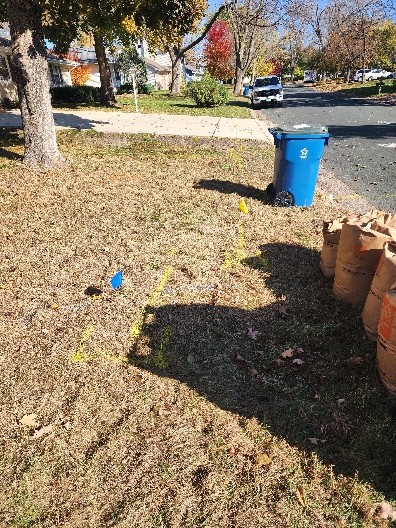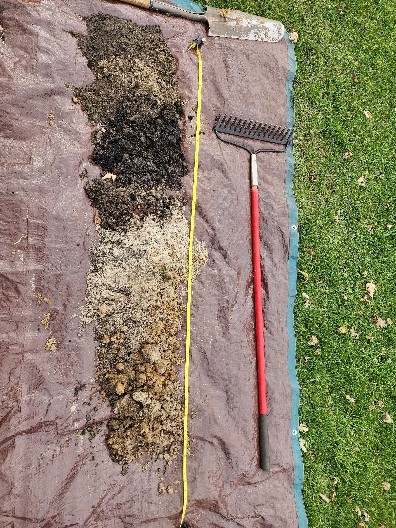Rain gardens capture and clean stormwater runoff before it reaches local waterbodies. Finding the right place to put one, especially a curb-cut rain garden that collects water from the street, takes more than just finding an open spot in the yard.
Several factors influence whether a rain garden will work effectively: the size of the area draining to it, the property's use, available space, landscaping features, and yard slope. While these things are easy to see, some of the most important considerations are hidden underground. Utilities such as water, sewer, gas, and electric lines must have adequate soil cover, and rain gardens can't interfere with these requirements. Soil is another key factor. Sandy soil allows water to soak in easily, while silt and clay soils may require special construction or make a site unsuitable for infiltration.
To explore where rain gardens can be most effective, the City of Fridley is partnering with ACD as part of a 2026 street reconstruction project. Properties in the project area with ideal conditions were identified, and those with interested landowners are now being evaluated for feasibility. Pairing rain garden installation with street reconstruction is a cost-effective way to manage stormwater in neighborhoods that currently lack treatment. With thoughtful planning above and below ground, curb-cut rain gardens can provide long-lasting benefits for both water quality and neighborhood beautification.










